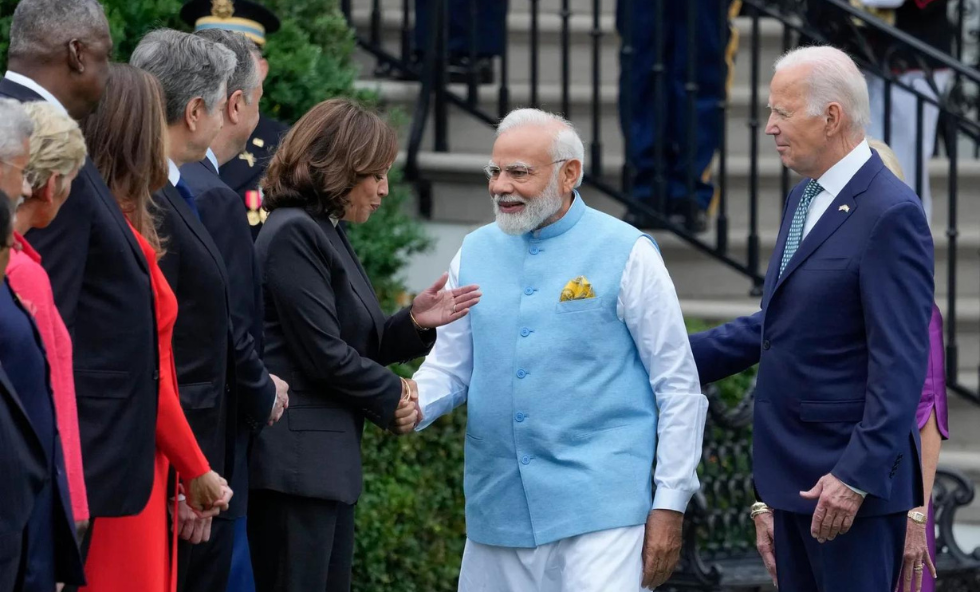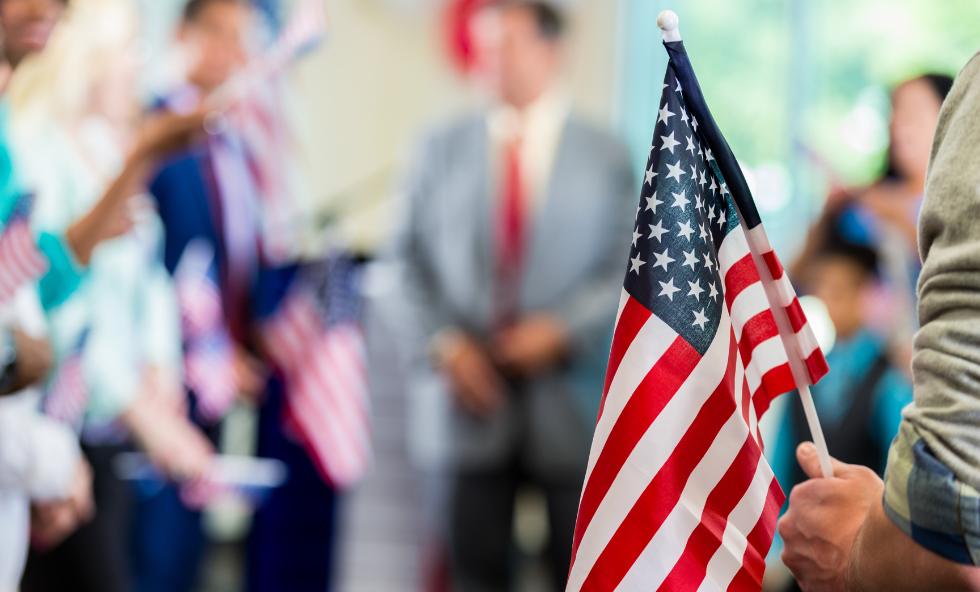The Indian diaspora in the United States has emerged as a dynamic and influential force in American politics, reshaping the landscape of a nation known for its diversity. The impact of Non-Resident Indians (NRIs) on US political dynamics is multifaceted and intriguing. This article will delve into the profound ways in which the Indian diaspora’s engagement in American politics is not only shaping the political arena but also intertwining it with India’s own political interests.
The Rising Influence of NRIs in US Politics
1) Growing Population and Political Participation:
Over the years, the Indian diaspora in the US has grown significantly in size and influence. As of 2021, it is estimated that there are more than 4 million Indian Americans in the United States. This burgeoning population has become increasingly engaged in American politics through activities such as voting, running for office, and financial contributions to political campaigns.
2) Representation in Elected Offices:
NRIs have made significant inroads into US politics by being elected to various offices at the federal, state, and local levels. The presence of Indian American politicians in the US Congress, state legislatures, and city councils highlights the influence of the diaspora in shaping American policies.
India’s Role in US Political Dynamics

1) Bilateral Relationships:
India’s growing global significance has prompted the United States to strengthen its ties with the world’s largest democracy. The Indian government plays an active role in building and sustaining relationships with the Indian diaspora in the US, recognizing their potential to further the Indo-US partnership.
2) Economic and Trade Relations:
India’s economic growth and its status as a major trading partner of the US have a direct impact on American politics. Decisions regarding trade agreements, technology partnerships, and investment opportunities in India are often influenced by the interests of both countries’ diaspora communities.
How NRIs Affect US Political Dynamics
1) Campaign Financing:
Indian Americans are increasingly becoming significant contributors to political campaigns. Their financial support plays a pivotal role in shaping the policies and priorities of political candidates, particularly those who advocate for issues of interest to the Indian community.
2) Advocacy and Lobbying:
NRIs engage in advocacy and lobbying efforts that revolve around issues close to their hearts. These include immigration reforms, H-1B visa policies, religious freedom, and strengthening US-India ties. Their collective voices are an essential part of American political discourse.
3) Cultural and Social Integration:
Beyond policy matters, the Indian diaspora contributes to US political dynamics through cultural exchange and social integration. Festivals, cultural events, and community engagement programs foster a sense of unity, diversity, and mutual understanding that enriches American society and politics.
Conservative American Views on NRI Involvement in US Politics
The growing influence of the Indian diaspora on US political dynamics is a topic of significant interest. NRIs have become increasingly active in American politics, affecting various aspects of the nation’s political landscape. They play a pivotal role in shaping policies and strengthening US-India relations. However, it’s important to consider the conservative American perspective on the involvement of NRIs in US politics.
From a conservative standpoint, some individuals may express concerns about the involvement of NRIs in shaping US politics. Their views often revolve around the following key points:
- Allegations of Foreign Influence: Conservatives may argue that the active participation of NRIs in American politics raises questions about foreign influence in domestic affairs. Some may be skeptical of individuals with dual loyalties and question the extent to which NRIs prioritize American interests over those of their home country.
- Policy Priorities: There can be disagreements over policy priorities. While NRIs often advocate for issues such as immigration reform and strengthening US-India ties, conservative Americans may prioritize different concerns, leading to clashes in policy advocacy.
- Campaign Financing: The financial contributions of NRIs to political campaigns, while legal and common, may be viewed with suspicion by some conservatives. They might raise concerns about undue influence and the potential for financial interests to sway policy decisions.
- Religious and Social Issues: Differences in cultural and social values can lead to conservative Americans being wary of NRIs’ advocacy on religious and social issues. For example, some conservatives may have reservations about NRIs’ support for LGBTQ rights or religious freedom.
Despite these conservative concerns, it’s important to note that the Indian diaspora’s influence on US politics is not uniform, and their engagement is not limited to any one political ideology. They represent a diverse group with varying viewpoints and priorities.
Overall, the impact of NRIs on US political dynamics is a multifaceted issue that invites a range of opinions, with conservatives expressing their reservations while others recognize the value of their engagement in shaping the nation’s political landscape and international relationships.
Liberal American Views on NRI Involvement in US Politics

The rising influence of the Indian diaspora on US political dynamics is a subject of significant interest, drawing varying viewpoints from different segments of American society. From a liberal American perspective, the involvement of NRIs in US politics is often seen in a positive light, with several key points of view:
- Diversity and Inclusion: Liberals tend to view the active participation of NRIs as a testament to the diversity and inclusivity of American democracy. They see it as a reflection of the nation’s ability to welcome and engage people from diverse backgrounds in the political process.
- Support for Progressive Policies: The Indian diaspora in the US has been active in advocating for progressive policies, such as immigration reform, LGBTQ rights, and environmental sustainability. Liberals often align with these policy positions and appreciate the support of NRIs in advancing these causes.
- Strengthening US-India Relations: Liberals generally recognize the importance of a strong US-India relationship and view the engagement of NRIs as a bridge for cultural and economic exchange. They appreciate the role NRIs play in fostering positive diplomatic ties between the two countries.
- Advocacy for Human Rights: Many liberal Americans appreciate the efforts of NRIs in advocating for human rights, both in the United States and abroad. Their support for issues like religious freedom and social justice aligns with the liberal commitment to human rights.
- Cultural and Social Enrichment: NRIs contribute to the cultural diversity of the United States, which is often celebrated by liberals. Festivals, cultural events, and community engagement programs organized by the Indian diaspora enrich American society and promote a sense of unity and understanding among different communities.
While liberal Americans generally view the involvement of NRIs in US politics positively, it’s important to note that perspectives can vary within this political group as well. Not all liberals share the same viewpoints, and some may have reservations or concerns about the influence of NRIs in specific areas.
Conclusion
The Indian diaspora in the United States is a powerful and transformative force in US politics. As NRIs become more integrated into the American political landscape, their influence continues to grow. Simultaneously, India’s role in US political dynamics is expanding, impacting various policy decisions and international relationships. The intersection of these two factors illustrates the intricate relationship between the Indian diaspora, India, and the United States, showcasing a future where the influence of NRIs in shaping US politics will only continue to increase.










